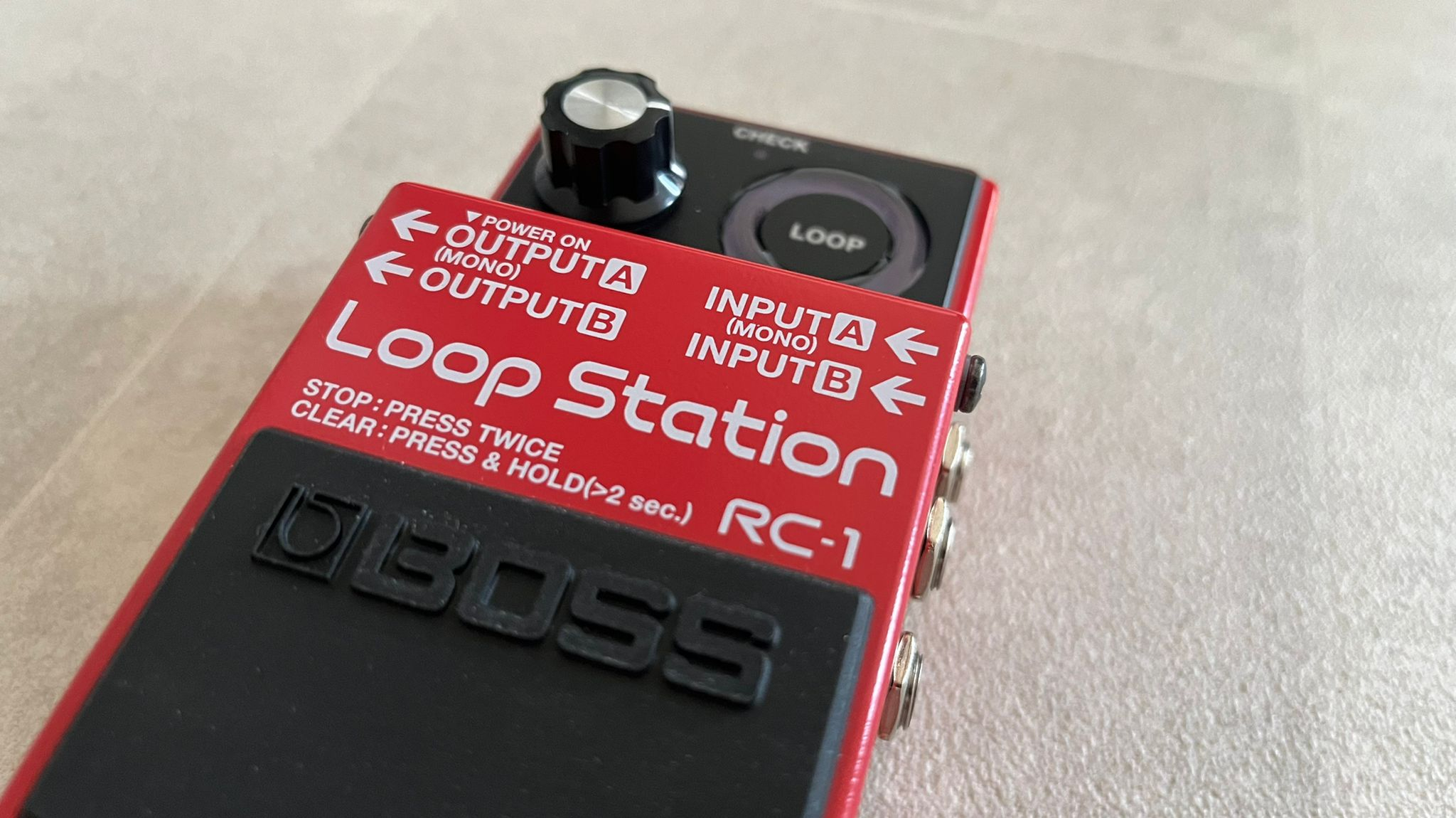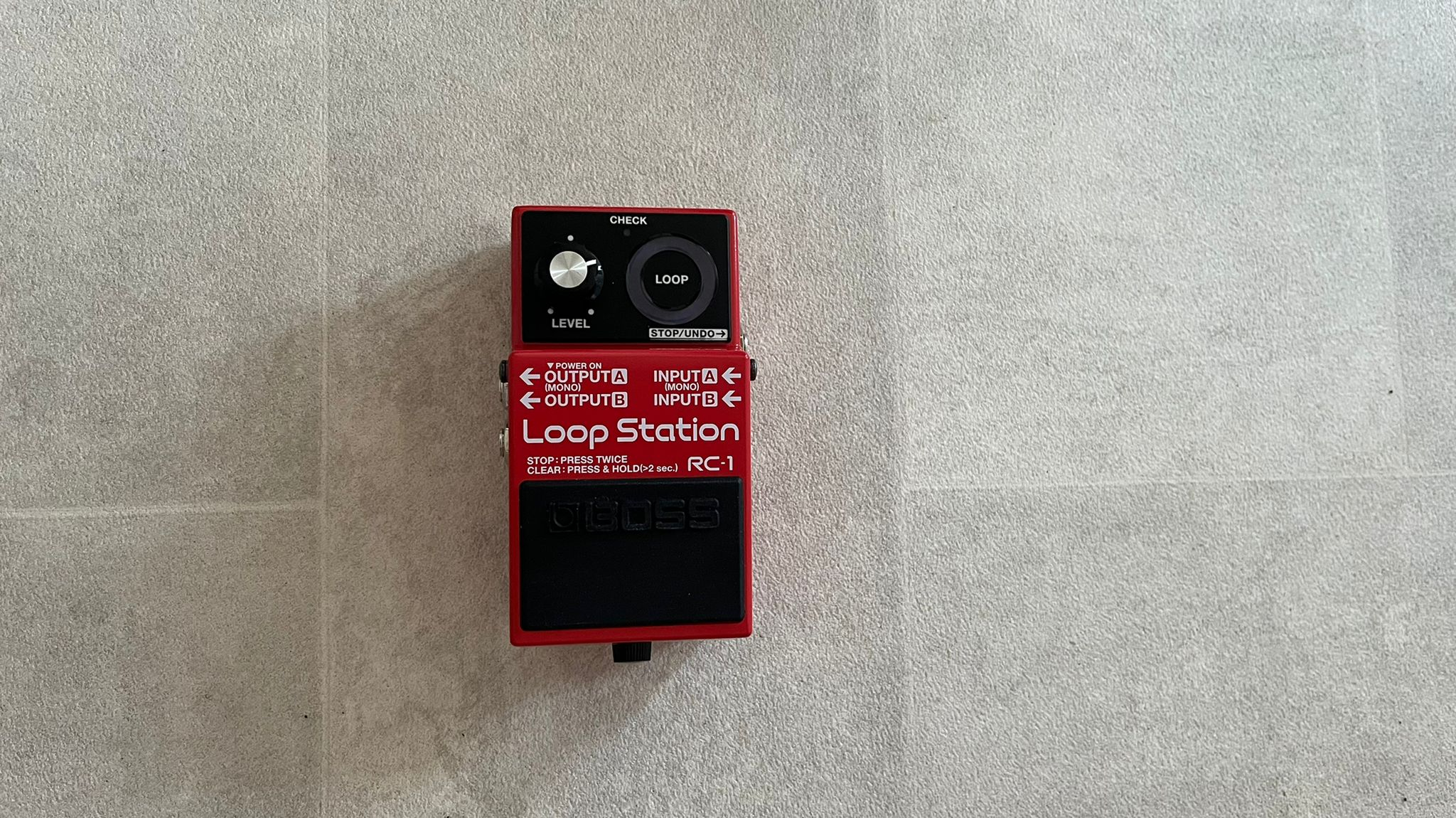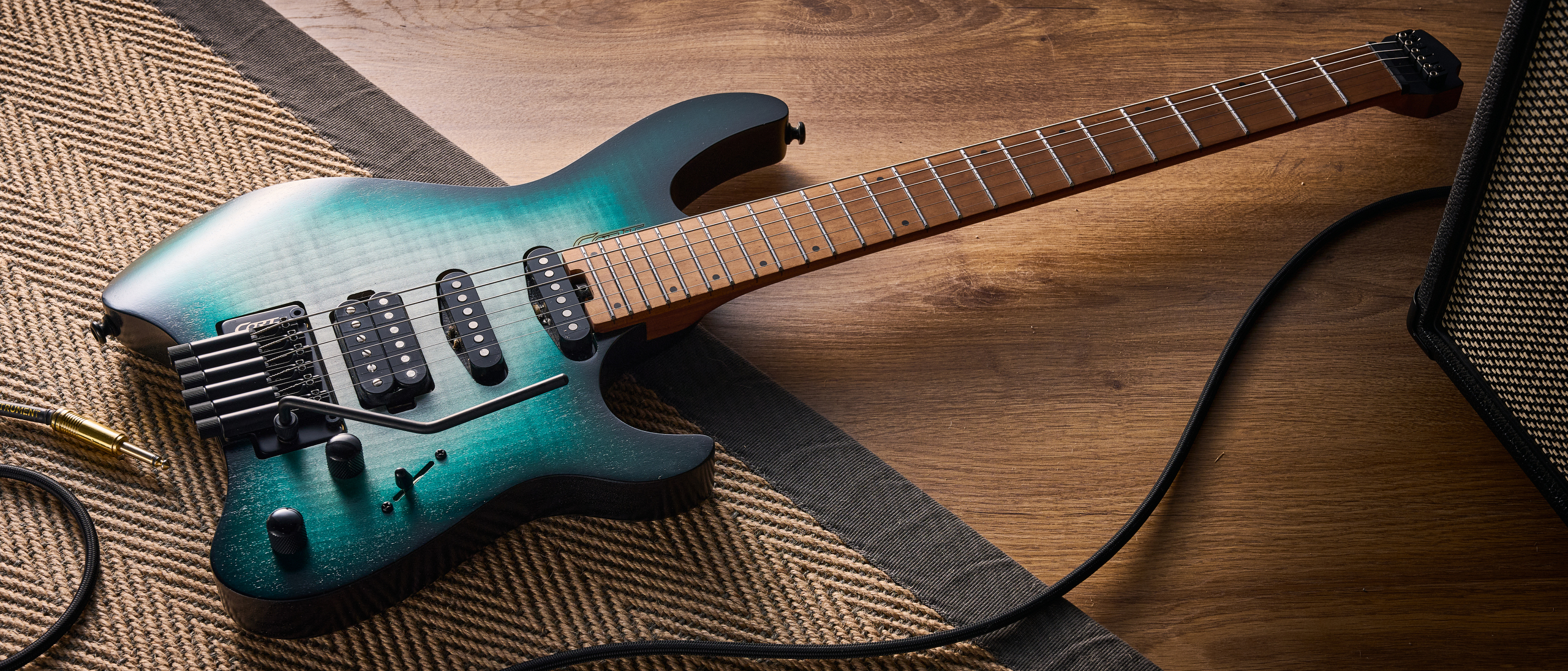Guitar World Verdict
The Boss RC-1 Loop Station is a really easy-to-use looper pedal with great functionality, 12 minutes record time, stereo ins and outs, and superb build quality. This pedal is perfect for simple looping in a live performance setting or for writing.
Pros
- +
Great functionality
- +
Classic Boss build quality
- +
LED circle is very helpful
- +
Super intuitive - can get started straight away
- +
Well priced
- +
Option for external footswitch
Cons
- -
Deleting a loop might require playing it back briefly
- -
Serious loopers might want something with more footswitches
- -
Can only store one loop
You can trust Guitar World
The Boss RC-1 is a well-laid out, easy-to-use looper pedal with 12 minutes of stereo recording time. It’s a single footswitch pedal that, with a various number of stomps, can do a lot, though you do have the option of plugging in an external footswitch for further functionality. It’s compact and durable, so you can throw this in your gig bag and you’re ready to go.
It has an onboard circular LED light display that helpfully shows you whereabouts in your loop you are, as well as whether you’re in record, overdub or playback mode. Stereo inputs and outputs mean you can use this alongside stereo effects pedals or with synths, keyboards and other stereo instruments.
The Boss RC-1 looper pedal is really easy to navigate. Purposefully avoiding any sort of instructions, we plugged this pedal in and got looping straight away. A single tap starts recording, and another stops it. The loop then plays back from the beginning and now you can start building your layers.
Tap again and you’re in overdub mode. You can either tap again to stop, or you can leave it running, which lets you build up your layers without having to let the loop go around again, as it will automatically record a new layer each time around.

Having an undo function is really handy on a looper - the best loops are really well-timed and it’s not difficult to miss a beat and mess up slightly. If you know you’ve put a note wrong, you can simply press and hold the pedal and it will delete the last layer you recorded.
To stop the loop entirely, you just double-tap the pedal. You can then bring it back in by tapping it again. This is handy if you want to stop everything during a live performance for a quiet section of a song and reintroduce it for impact. If you want to delete everything to start from scratch, it’s a double tap and hold. This is where the RC-1’s only functional downside lies.
If you get to the end of the song, for example, you can double tap and hold and it will stop the loop and delete it, so you’re ready for the next one. However, if you double tap to stop, and maybe you’re not sure if you’ll need the loop again or you forgot to hold it down, you then have to play the loop again for a second or so whilst it deletes.
All the latest guitar news, interviews, lessons, reviews, deals and more, direct to your inbox!
In most instances, this won’t be an issue, but in a live performance scenario, if you stop your loop without deleting it, you do then have to engage it very briefly again to get rid of it (a workaround is to turn the volume down whilst you do so).

In terms of the physicality of the pedal, it’s great. For those unfamiliar with the famous Boss build quality, these pedals are incredibly sturdy. You could use this night after night at sweaty gigs and open mic nights for years without any fear of it going wrong or wearing out.
The single volume knob couldn’t be more simple as a layout, plus it’s big enough to adjust with your feet if you want to kick it up or down on the fly whilst playing live. The LED circle is really useful, too; you can’t get lost wondering if you’re in playback or overdub mode, and you always know when your loop is about to come full circle.
This is a simple looper pedal, and you’ve got 12 minutes of time to play with. If you’re wanting to loop vocals as well, then you might want to look for something with XLR connectivity and maybe with more than one footswitch. There are other looper pedals out there that do the same thing as this, but there’s something so reassuring about plugging in a Boss pedal.
The layout is one of the easiest to navigate on the market, the LED circle is super helpful and relatively exclusive to Boss, plus a five-year warranty gives you peace of mind.
Conclusion

If you’re searching for a simple looper, then it’s hard to not recommend the Boss RC-1. It does a lot with just a single footswitch, plus it gives you the option of adding more functionality with an external pedal. Twelve minutes of record time and unlimited overdubs should be plenty for most players too.
It’s the perfect looper pedal for anyone wanting something that’s reliable and sturdy to enter the world of looping or perhaps to aid their live acoustic guitar performances.
Specifications
- Price: $119/£109
- Footswitches: 1
- Controls: Volume
- Record time: 12 minutes
- Overdubs: Unlimited
- Power: 9V DC (battery or mains)
- Contact: Boss
After spending a decade in music retail, I’m now a freelance writer for Guitar World, MusicRadar, Guitar Player and Reverb, specialising in electric and acoustic guitars, bass, and almost anything else you can make a tune with. When my head’s not buried in the best of modern and vintage gear, I run a small company helping musicians with songwriting, production and performance, and I play bass in an alt-rock band.


